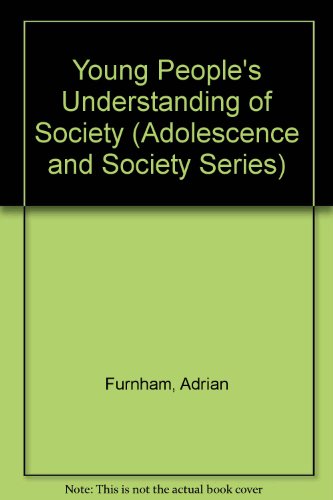Adolescence and Society
1 total work
Young People's Understanding of Society
by Adrian F. Furnham and Barrie Stacey
Published 4 April 1991
Despite a wealth of research on young people's understanding of the "physical" world, there is very little available on their understanding of the "social" world, or how they understand the functioning of society. In this study, the authors take a social-cognitive view of adolescence, focusing on the processes by which young people learn to understand other people's thoughts, emotions, intentions and behaviour. Such understanding is often partial and fragmented because social knowledge, unlike knowledge of the physical world, is often arbitrary, determined by economic and cultural variables rather than by observation and experiment. Concentrating on the social world of politics, economics, work, gender and religion, the book covers such issues as politics and government, work and unemployment, law and legislative matters, religion, marriage and the family, social class, and racial and ethnic differences.
